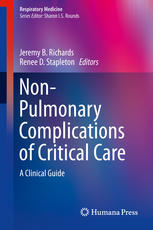

Most ebook files are in PDF format, so you can easily read them using various software such as Foxit Reader or directly on the Google Chrome browser.
Some ebook files are released by publishers in other formats such as .awz, .mobi, .epub, .fb2, etc. You may need to install specific software to read these formats on mobile/PC, such as Calibre.
Please read the tutorial at this link: https://ebookbell.com/faq
We offer FREE conversion to the popular formats you request; however, this may take some time. Therefore, right after payment, please email us, and we will try to provide the service as quickly as possible.
For some exceptional file formats or broken links (if any), please refrain from opening any disputes. Instead, email us first, and we will try to assist within a maximum of 6 hours.
EbookBell Team

4.7
76 reviewsClinical research in critical care has exploded in the past several years and we now have a much better understanding of how to care for intensive care unit (ICU) patients in areas such as management of sepsis, fluid resuscitation, mechanical ventilation, antibiotic administration and sedation and analgesia. However, despite improved clinical care, many critically ill patients continue to experience complications of critical illness - some complications are iatrogenic and preventable, while others are simply a component of the natural history of critical illness. These complications lead to increased mortality, morbidity, cost and long-term chronic conditions. Non-Pulmonary Complications of Critical Care: A Clinical Guide is a valuable resource for trainees and clinicians who aim to better understand and improve the quality of critical care medicine. Armed with information about potential non-pulmonary complications of ICU care and strategies to minimize or prevent those complications, the critical care clinician will be able to help ICU patients potentially avoid much of the morbidity associated with critical illness. This book is organized by organ system such that it can be easily used as a bedside reference. Complications caused by pharmaceuticals are dispersed throughout every chapter and the concluding chapters provide a special emphasis on meticulous supportive care of the critically ill patient to allow the best chance for recovery.